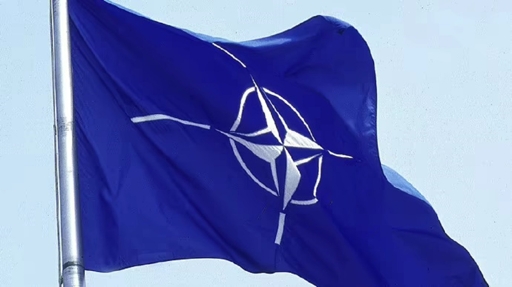NATO allies are trying to coordinate a response to Russian violations of their airspace but are openly contradicting one another, Bloomberg has reported.
Source: Bloomberg
Details: On the evening of Tuesday 23 September, Germany warned against the risks of shooting down Russian aircraft, while US President Donald Trump almost simultaneously signalled his openness to a more aggressive stance, supported by Poland and the Baltic states. On Monday, Polish Prime Minister Donald Tusk warned that any aerial threats would be met with force, insisting there is “no room for discussion” on the issue.
Bloomberg noted that this back and forth has revealed troubling divisions within the alliance, as Russian leader Vladimir Putin is testing its resolve. A series of incidents in which Russian aircraft crossed NATO allies’ airspace has caused concern on its eastern flank and beyond.
Estonia called for emergency NATO and UN Security Council meetings this week after three Russian fighter jets had spent 12 minutes in the Baltic country’s airspace over the Gulf of Finland. The incident occurred only weeks after Russian drones had violated the airspace of Poland and Romania.
Together, these incidents increase pressure on NATO to formulate a credible response. Without a clear response plan, maintaining a reliable deterrent capability will be challenging.
However, unlike its partners, Germany is calling for a cautious approach. Defence Minister Boris Pistorius stated that NATO allies risk falling into Putin’s “escalation trap” by engaging Russian aircraft.
Other allies are demanding a firmer stance to send a message to the Kremlin. Latvian President Edgars Rinkēvičs called for a “show of force” by NATO in response to Russian incursions.
The latest incident to draw attention was on Wednesday 24 September when the military aircraft carrying Spanish Defence Minister Margarita Robles experienced GPS disruptions while en route to Lithuania.
Quote from Bloomberg: "GPS interruptions are relatively common in eastern Europe, especially since the start of the [full-scale] war in Ukraine. A plane carrying European Commission President Ursula von der Leyen suffered a similar episode on its approach to Plovdiv airport in Bulgaria at the end of August, one of hundreds of similar incidents reported each year.
The GSP disruption, which occurred near Russia’s Kaliningrad, followed the presence of several large drones on Monday evening, triggering a shutdown of Copenhagen airport."
Details: US President Donald Trump weighed in on the matter during a meeting with his Ukrainian counterpart Volodymyr Zelenskyy on the sidelines of the UN General Assembly in New York on Tuesday. Asked by a journalist whether he backed NATO allies shooting down Russian aircraft, he replied: “Yes, I do.”
Meanwhile, Bloomberg noted that the US position is still unclear. Trump declined to say whether the White House would back NATO if the alliance attacked Russian aircraft over its airspace, stating that it “depends on the circumstances”, but that “we’re very strong towards NATO”.
Only hours before Trump spoke, US Secretary of State Marco Rubio challenged Polish Prime Minister Tusk’s claim that Poland was ready to shoot down foreign aircraft entering its airspace. Rubio emphasised that NATO’s policy calls for intercepting rather than engaging aircraft that pose no direct threat.
NATO released a statement on Tuesday pledging a “robust” response to Russian incursions, stating it would employ all measures, including military action, to defend itself, echoing Tusk’s stance.
Finnish President Alexander Stubb urged allies “not to overreact but be firm enough, because the only thing Russia understands is power”.
On the other hand, Bloomberg says the Kremlin is feeling pressure due to greater support for Ukraine from Trump. On Tuesday, in a social media post, the US president said that, in his view, Ukraine – with EU support – has the ability not only to resist but also to reclaim all territories seized by Russia since its 2022 invasion, “and maybe even go further”.
“Putin and Russia are in BIG Economic trouble, and this is the time for Ukraine to act,” Trump wrote on social media.
Moscow rejected this, with Putin’s spokesman Dmitry Peskov claiming that the country is maintaining its “resilience and stability”. The most important point is that Trump is committed to his decision to remain a neutral observer in Russia’s war against Ukraine, an insider familiar with Kremlin discussions told Bloomberg.
German Foreign Minister Johann Wadephul welcomed Trump’s change in rhetoric, saying the US president “is drawing the correct conclusions” from his unsuccessful attempts to push Putin towards peace.
For a NATO member, this implies caution and avoiding falling into the Kremlin’s trap.
Quote from Wadephul: "The calculation behind this is clear.
First provoke NATO allies and then, in the event of an escalation, act completely surprised and discredit NATO."
Support Ukrainska Pravda on Patreon!
From Ukrainska Pravda via this RSS feed


